
A palestinian prologue: The walls of Jerusalem
Well it’s taken me a long time to reflect and report the laughter and tears that contributed to the most memorable trip I have ever made. Palestine is an amazing country – the scenery is beautiful and tragic at the same time, the people are just lovely and were incredibly welcoming to us, and don’t even get me started on how delicious the food is! Time seemed to stand still which we were very grateful for, as we had the chance to do so much, and see so many fabulous people who gave up their precious time to meet us, share their stories, and show us around their beautiful country.
To do this amazing place justice and in order to prevent myself from serious typing injuries, I’ll split the adventures into three posts, starting here with Jerusalem (technically part of the West Bank but annexed by the Israelis, occupied and separated from the other cities that were occupied in 1967), then two further posts to cover Occupied Palestine, or The 48 Areas (unfortunately these are better known as Israel) and the West Bank. Hopefully our adventures will inspire others to join the Zyara group for next year and continue to help spread the word…
I don’t think I’ve ever been quite as pleased to reach a destination as I was to reach Jerusalem, though the crossing from Amman wasn’t as fraught as it could have been, it was certainly far from pleasant, and this unpleasantness was dragged out over six hours in total. We were prepared for hostility and did not cross as a group, having heard stories of the ‘reluctance’ of Israel to give visas to supporters of the Palestinian cause wanting to visit the West Bank. In a strange way the scene was mildly reminiscent of The Great Escape as we all marched through and waited in the same vast rooms, holding our breath and trying not to make eye contact with anyone. The endless questioning and deliberate delaying/holding of passports in order to discourage us from visiting was more frustrating than intimidating as we were fully prepared for this kind of behaviour, although all the weeks of preparation could not have prepared me to witness the thuggish behaviour of the Israeli guards and their blatant bullying of the elderly, infirm or vulnerable, including children in pushchairs and old men in wheelchairs. The feeling of helplessness as a witness made me feel sick to my stomach and was a feeling that unfortunately arose on several occasions throughout the trip.
We would not allow our spirits to be broken though, and felt very triumphant when we were all successfully reunited in Jerusalem. The city itself was as awe-inspiring as I had imagined, the majestic walls of the old city encircling a labyrinthine maze of cobbled alleyways, markets and streets buzzing with life, from the animated and vocal traders, tea sellers and their customers, to the sedate corners of refuge where old men sat drinking tea, smoking shisha and deliberating over endless games of backgammon.
We took in the tourist sites of what is arguable the most religiously significant city in the world, including the Church of the Holy Sepulchre and Jesus’ tomb, the Wailing Wall, the Mount of Olives, the Gardens of Gethsemane, the Stations of the Cross and Via Dolorosa, and Al Aqsa Mosque and Dome of the Rock which left even the most irreverent of the group in awe. The beauty of travelling with Zyara however was that we got to see under the tourist glaze surface of the city, visiting some of the Palestinian communities and energetic school summer camps. The children of Jerusalem provided a stark contrast: we saw many Israeli settlers’ children walking home from school, escorted by Israeli private security, one at the front, one at the rear. These perfectly polished model children, safely escorted through the busy streets as a result of their parents insecurity (a feeling created when they moved into what were rightly Palestinian homes in the middle of Palestinian neighbourhoods), walked quickly in single file, with their eyes front, no laughter or smiles – a million miles away from their Palestinian counterparts. The latter were full of toothy grins and once I started taking pictures, mobbed me with giggles and silly poses, the older ones passionately showing us the traditional dabke dance they were practicing with such pride it brought tears to our eyes.
And it wasn’t just the Palestinian children that were an inspiration, we quickly made new friends with the local Zyara supporters – lovely guys of a similar age to me who, had they lived in Dubai, would have probably been part of my social circle. These guys told us so many stories of themselves and their families, as well as others they knew, which ranged from mildly disturbing to very upsetting. Everything from tales of administrative detention (being put into prison for up to 45 days without being charged, and often without being able to inform anyone) to imprisonment during the final year of studies to try to prevent them from graduating. What was more heartbreaking was the normalisation of their stories, and the admission that they feel lucky and ashamed at the same time because, while they admit they live in fear, they are all too aware that there are so many other people that they know well who have suffered so much worse.
These people include the inhabitants of Silwan, one of the poorer suburbs of the city, where the Israelis are trying to demolish 88 buildings – home to 1,500 people – in order to create a park because they now believe it is a religious site (they believe King David walked here). An interesting point to note is that once an eviction notice is served, the inhabitant can choose to destroy the home they built for themselves over the years, or else pay for the privilege of watching someone else do it! Other common ways to force Palestinians from their homes include flattening buildings in order to build graveyards, parks or car parks (often just a facade), taking the groundwater from its source, and/or increasing taxes. By stopping people from freely entering Jerusalem they reduce trade and by increasing taxes they increase the economic pressure on Palestinians. Being escorted around the condemned neighbourhood of Silwan really made me appreciate the implications of these actions. We heard yet more sobering stories from residents, and were lucky enough to get a meeting with the Director of the Jerusalem Centre for Social & Economic Rights who explained the visible and invisible social and economic pressures and geographic and demographic issues including the demolitions, taxes, tourism, poverty, population movement and growth.
I really struggled to comprehend the words I was hearing, still confounded as to how this can be going on so blatantly. I wanted to cry so many times, but hated the thought that such lovely people might feel I pitied them – some weak outsider who has come in as a spectating tourist before returning to my lovely marina-view flat in Dubai – so I held it together, nodding away in encouragement and hanging on their every word, until one night when I returned to my hotel room and shed a few tears in private.
But it wasn’t all doom and gloom, the spirit of the Palestinians was contagious and we saw some great neighbourhoods where people were working together for change. Burj Al Luq Luq was a fantastic community space for Palestinians that a previous Zyara trip had helped to renovate.
The people we met showed great hospitality and insight, sharing their freshly made ka’ak and houmus, sweet shisha pipes and long cool Taybeh‘s – the perfect introduction to the Palestinian way of life and a great start to a very unique trip…











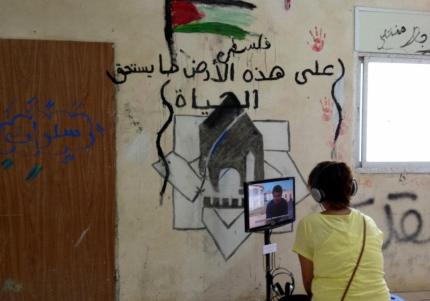
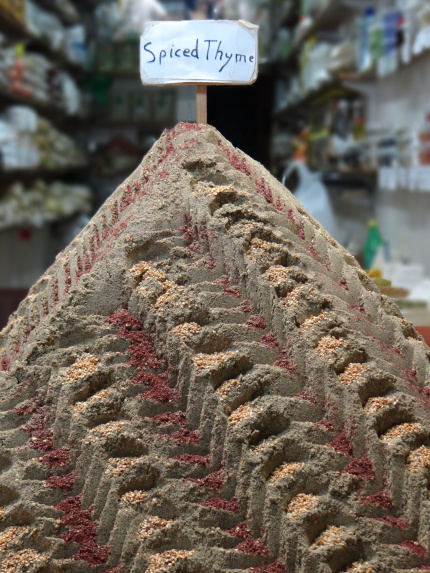
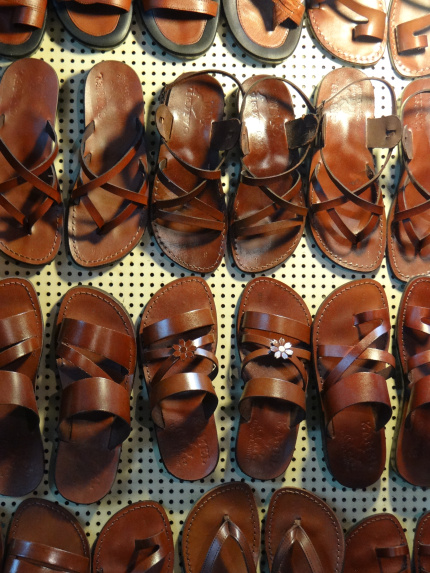
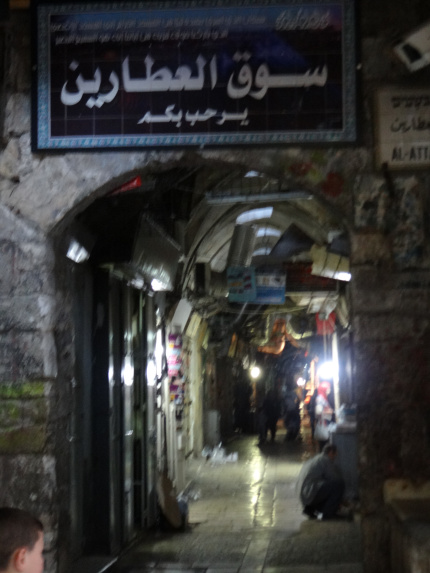
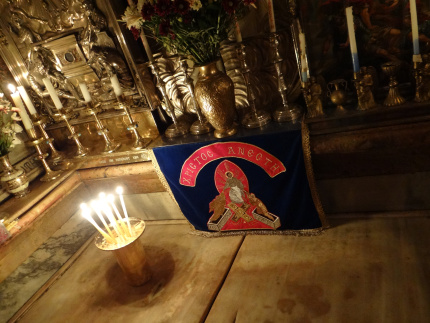
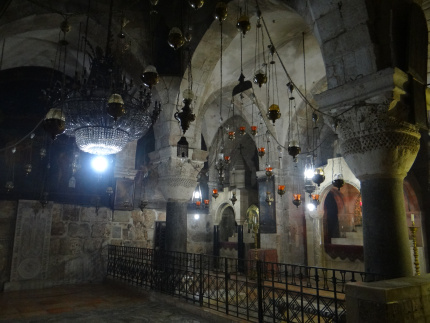
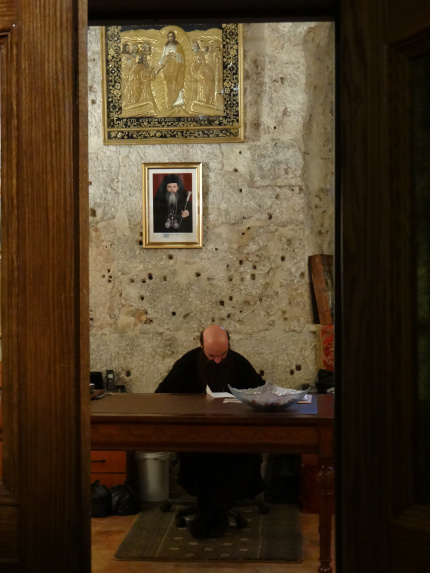
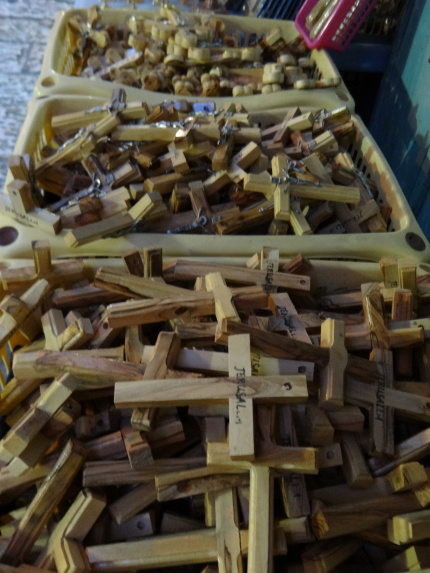
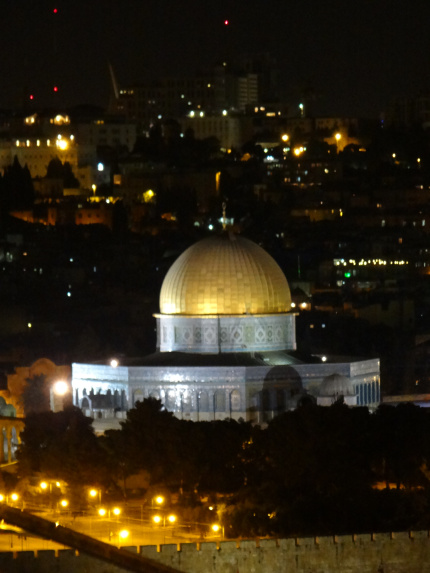
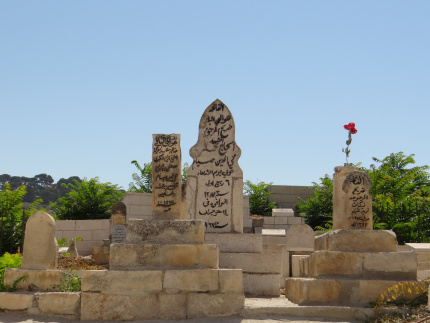
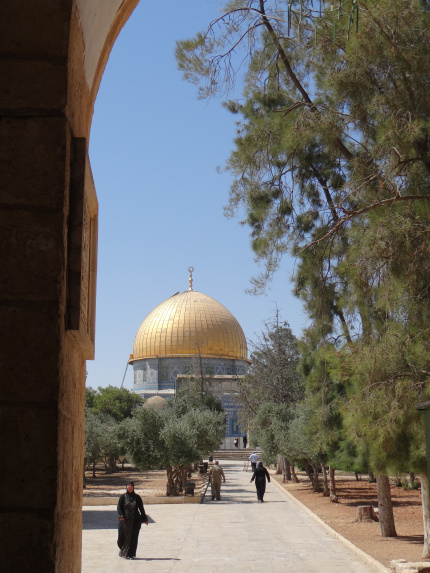
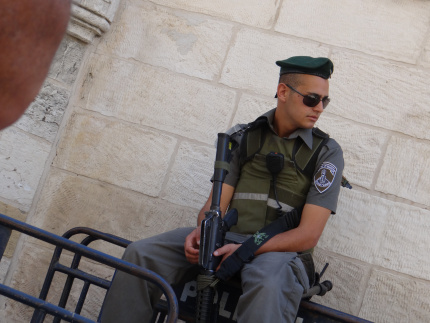
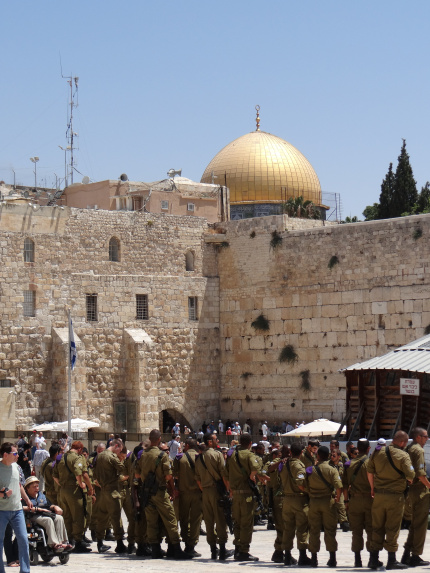
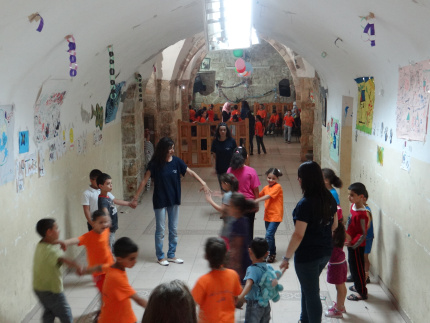
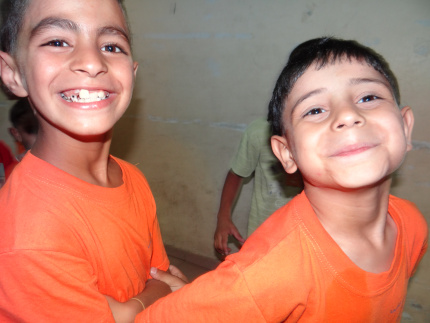
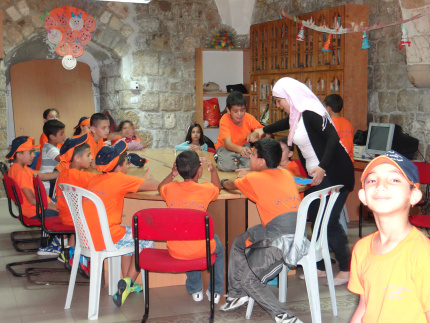
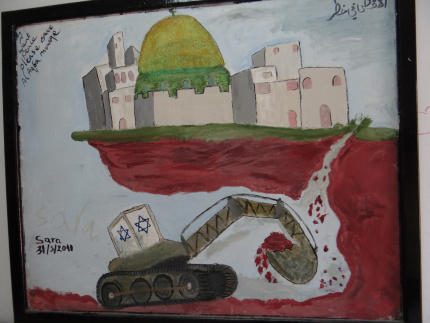
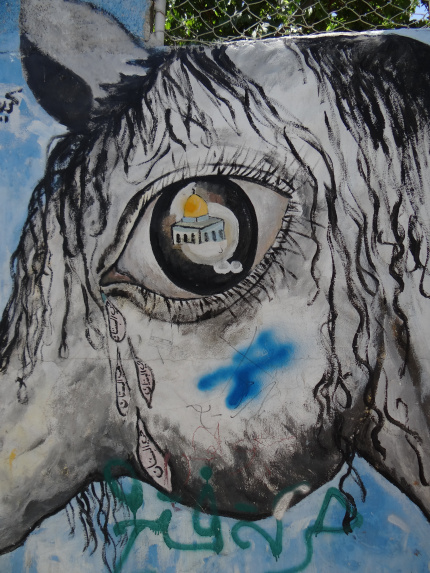
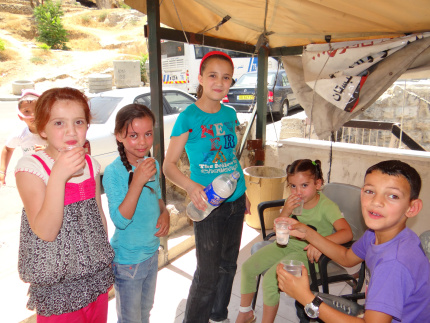
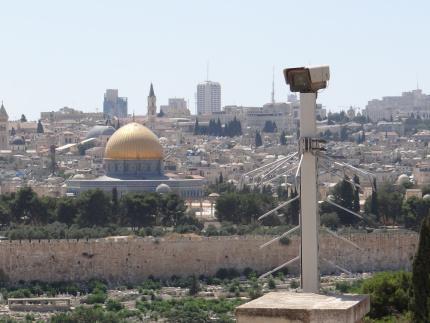
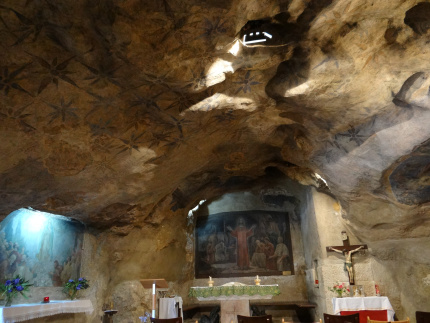
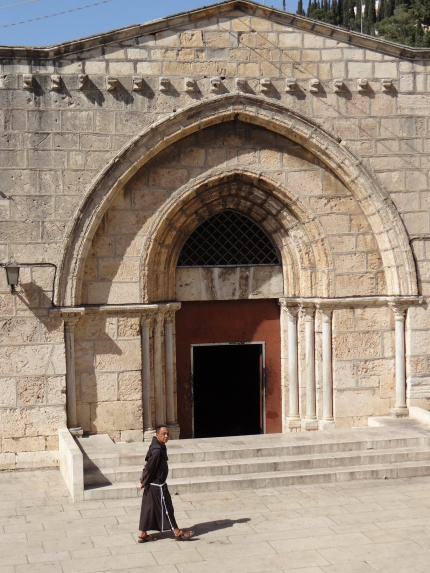

What a coincidence, I follow you on twitter and I went to Palestine with Zyara summer 2011 trip. After reading your post I felt the need to go again for another visit, so much I want to see and do, I want to go back and register in my mind what I have missed or forgotten the first time. Thank you for putting the trip into words, it made me feel good.
Thanks Salma, your comments make me really happy – I’m glad that I was able to make you feel good 🙂 I don’t know if you’ve seen but the 2013 group have just arrived so I’m sure there’ll be lots of posts on their Facebook over the next two weeks 🙂 Let’s try and arrange a get-together when they’re back for all Zyara participants, perhaps an Iftar? 🙂
Hi Samantha, thank you for the lovely reply, yes I follow up on Zyara news once in a while, looking forward to hear from the new group.
I would love to reconnect with anyone visited Palestine, maybe we can join efforts and raise awareness and add a positive note to the situation there. I will be here all Ramadan and love the idea to meet with all on Iftar. Please send me your email to salma.hijjawi@gmail.com and i will send you my mobile number, so that we stay in touch. Enjoy the week ahead. Salma
Fantastic, I’ll drop you an email then 🙂